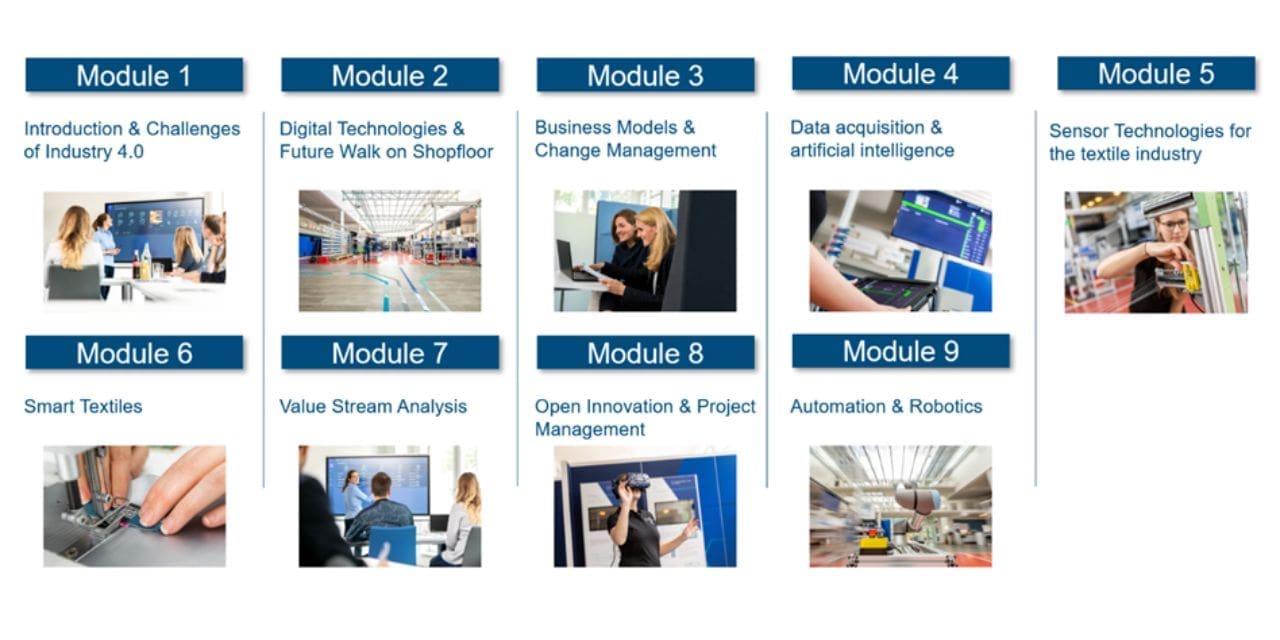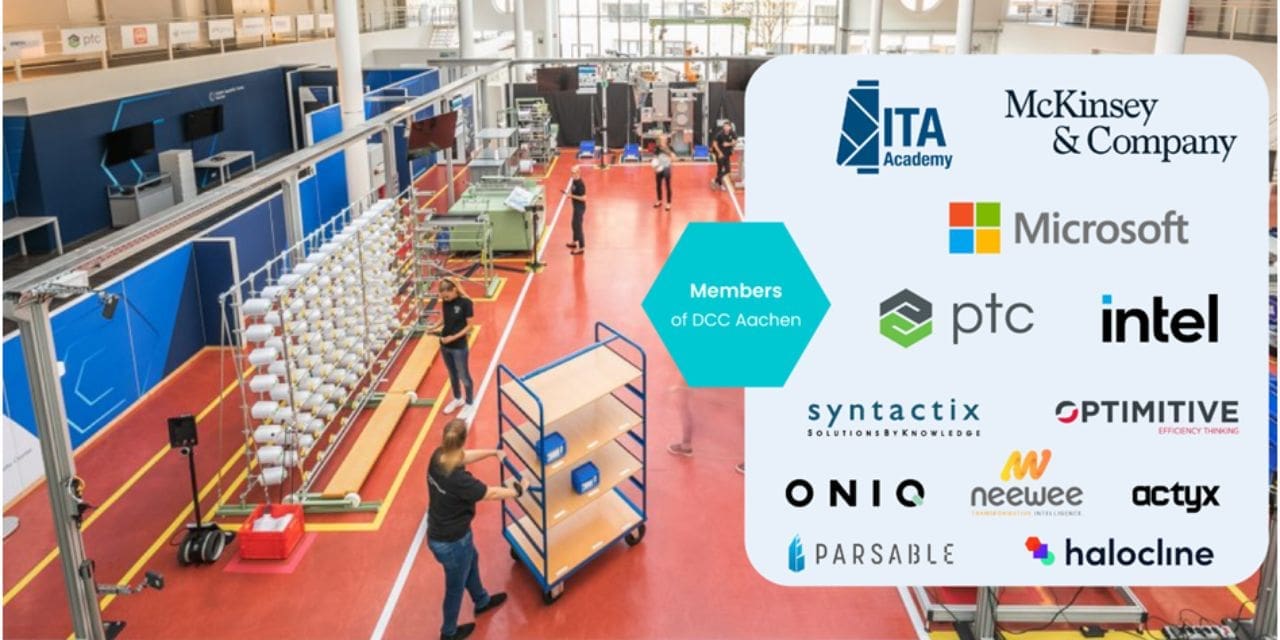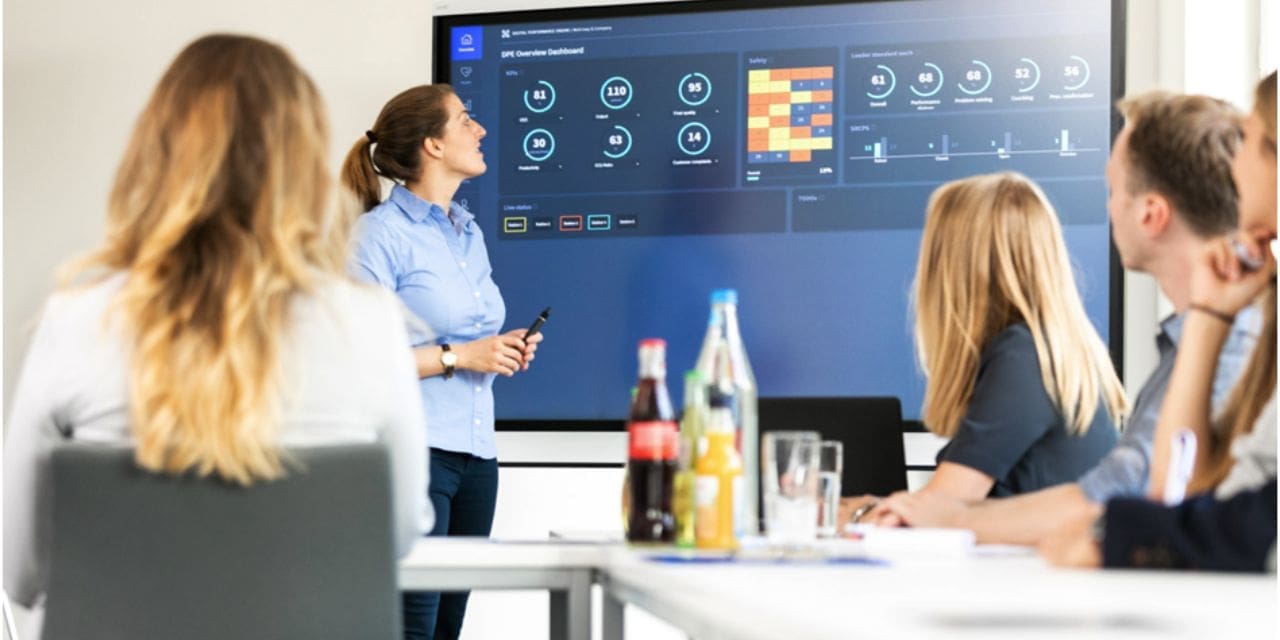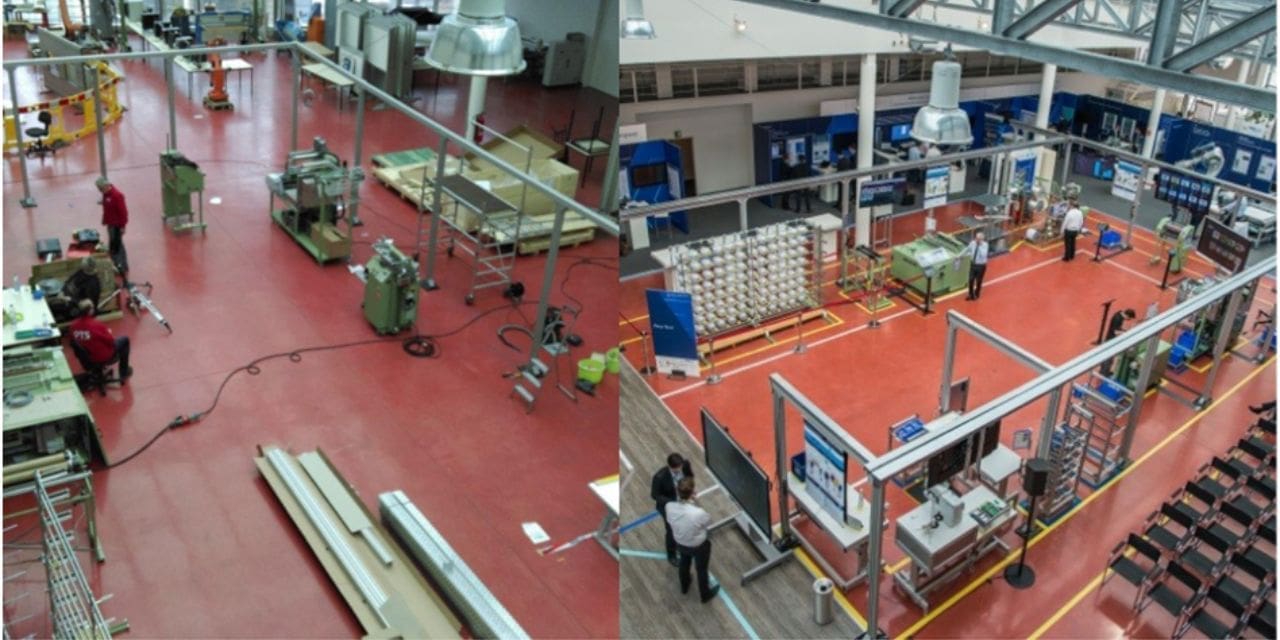Gesine Koeppe, M.Sc.
Project Engineer
ITA Academy GmbH, Digital Capability Center Aachen
Mail: g.koeppe@ita-academy.de
(Note: The ITA Group is kindly represented in all research and development matters in India by Mr. Gurudas Aras – g.aras@ita-gmbh-ac.de – +919820039244.)
Digital transformation and Industry 4.0 will impact more and more the competitiveness and economic success of enterprises in the future. Companies all over the world have been facing serious challenges for the last two years. This becomes visible by current travel restrictions, economic crisis in global supply chains and the changing work environment. Besides, the implementation of software and digital solutions, further competences of employees as well as their motivation and confidence towards the digitised processes need to be ensured. To overcome this barrier, the Digital Capability Center (DCC) Aachen, Germany provides a wide variety of digitalisation trainings, consultancy offerings and supports companies along their path towards digital value chains.
DCC Aachen: Grand Opening in 2017
The digital transformation is decisive for many processes in society and industry. Technological and digital development is the driver for a whole transformation of industry and based on the current needs of the production industry, the Digital Capability Center Aachen was founded in March 2017 as cooperation project between ITA Academy GmbH, Aachen Germany and McKinsey & Company Inc., USA.
The ITA Group, a group of multiple companies including the ITA Academy GmbH formed in 2016 by the Institut für Textiltechnik (ITA) of RWTH Aachen University, took over an impressive building, formerly known as “European Center for Mechatronics”, led by aps GmbH, Aachen Germany.
Figure 1: Before and after – DCC Grand Opening in 2017
Within four months, in March 2017, DCC Aachen celebrated the grand opening with more than 500 international guests from industry, university, and politics. A unique selling proposition is the real textile production site at DCC shopfloor. This learning factory is a central location for developing capabilities in a demonstration – and learning environment, as well as a testing ground for piloting and scaling new digital solutions.
The textile good produced at the DCC shopfloor is a smart wristband. Thereby all stages of the supply chain from incoming orders towards product development, wristband production and services are covered. Along all these stages of the production chain, several digital solutions were implemented. The wristband consists of a narrow fabric with a customised design and can be produced in individual lot sizes. The wristband includes various functions regarding the human-to-machine-communication. Based on the employee identification, stored on the wristbands RFID chip, machines or working stations can be set up individually, for example table heights, working instructions as well as machine control access can be adjusted.
The production of the wristband includes six stages which are presented at the DCC. These are: weaving preparation (warping), fabric production (weaving), finishing (coating, heat setting and digital printing), assembly (cutting, sewing, packaging) and quality control. At each stage, several digital solutions are demonstrated.
2018 enhancing digital training portfolio
At DCC Aachen, most clients ask “How can I benefit from industry 4.0? What is the value of digitisation? Where do I get data from and how do I generate benefit from data?.” To answer these and many more questions, ITA Academy GmbH was founded.
Figure 2: ITA Academy GmbH offers a wide range of training modules

During the last five years ITA Academy has developed its portfolio constantly, always in close interaction with textile clients. Starting with three workshops on lean management, sensor technologies and digital transformation, today ITA Academy is a consulting company which offers a huge variety of trainings and workshops for managers and technicians, qualification seminars, research and development projects as well as innovation management for textile industry.
Clients in the textile value chain can benefit from one-day trainings or week-trainings and create their individual workshop content, based on nine different workshop modules (see Figure 2).
Remote online class trainings per stream to overcome travel restrictions in 2020
The Digital Capability Center in Aachen works together with globally renown partners like, for example, the Tech company Intel Corporation, USA or the Internet of Things (IoT) / Augmented Reality (AR) developer PTC Inc., USA. Together with these partners and other on-site software and logistics companies, the DCC Aachen creates a highly dynamic, realistic and creative environment and network. This network helps the big companies to enhance their cooperation, but also offers the opportunity for young start-ups to develop and practically test their business model.
Figure 3: Membership network at Digital Capability Center Aachen

During the last five years the DCC had over 6000 visitors, ran over 95 digitisation workshops, has published in more than 65 magazines, papers and books and successfully implemented digital solutions in more than 20 research and development projects. Furthermore, the ability to offer workshops remotely was developed at the DCC Aachen. A skill, which was proofed very important during the Covid-19 pandemic and allows to perform workshops with clients across the globe and through different time zones.
2022 Development of AI Use Cases for Carbon Footprint reduction
Over 40 digital solutions for future manufacturing across all stages on the shopfloor are implemented at the DCC. These use cases behind the digital solutions covering all current needs of the production in global value chains, including one of the biggest challenges manufacturers face right now: the global climate crisis and the CO2 footprint. The industry must adapt quickly to comply with new laws like the German federal government’s goal to reduce the global temperature increase to a maximum of + 1.5°C to the preindustrial time.
AI-based parameter optimisation
The DCC has addressed the climate issues with the implementation of a solution for yield, energy, and throughput (YET) optimisation through artificial intelligence (AI).The finishing processes of the textile factory consume large amounts of energy to reach the expected throughput and quality standards. But by using the autonomous asset YET optimisation solution to automatically regulate machine parameters through artificial intelligence and machine learning methods, the energy consumed by the finishing assets was reduced by 13%. This shows once again how the model factory at the DCC is even ahead of its time for some use cases.
The direct and autonomous optimisation of industrial processes can significantly reduce the CO2 footprint, but other solutions also help in different ways:
Condition monitoring
A condition monitoring application offers comprehensive information about the production processes. Sensor data is collected in real time by a machine’s computer to then flow through IoT platforms such as edge devices, middlewares, data historians, and ultimately visualisation systems to be displayed on end devices like tablets, computers or smartphones, where the production is monitored by employees. The applications can also trigger alarms as soon as the process diverges from the preset parameters.
At the DCC Aachen, the warping process is monitored by employees via condition monitoring dashboard, that receives all information for quality control when logging into the machine. Different sensors collect data of yarn tension, knots, vibration, temperature, humidity and light. The collected data enables a faster reaction on problems during the warping process and offers data-based decision making. Consequently, the machine downtimes were reduced by 50% and the scrap by around 80%.
Figure 4: Process parameter optimization with Artificial Intelligence can be visualised in dashboards

Digital assistant systems
Using digital assistant systems has reduced the model factory’s downtimes related to machine setup by 75% and the time required to train people by 40%. This is due to the fact that unexperienced or untrained employees can get the required help for machine usage from this system.
For example, after warping, the elastic woven fabric is processed on a needle loom. But even such a complex process has been setup with working instructions to provide employees with weaving parameters and machine setup instructions based on their training level. Moreover, other possible problems, for example a broken thread, can be supported by augmented reality and step by step instructions.
Digital performance management
Digital performance management allows a visualized overview of the entire production line and therefore eases the decision-making process. It helps management positions to receive all necessary data and information, so that a smooth and efficient workflow can be achieved. Digital performance management can be linked to several Business Intelligence (BI) tools.
Augmented and virtual reality
The DCC also demonstrates digital solutions regarding the logistics, in this case the material supply of all the process stages. This is done with the help of augmented reality using the Google Glass®. Consequently, the productivity of the logistical process is increased by 25% as well as the quality of the process. The items in stock are equipped with RFID tags and employees wear a wristband equipped with an RFID reader to read items’ tags during the picking process and indicate the logistician if the picked item was correct or not. Incorrect picking gives the employee acoustic and visual feedback. The error rate in the logistical stage can be decreased by 60 %.
Adaptive workstation for ergonomics
For the stage of assembling, the DCC demonstrates multiple combined digital solutions: adaptive/individualised workplace design, cycle time measurement and digital assistant systems. Through these digital solutions divergence in cycle times can be reduced by up to 80% while productivity can be increased by 25%. At the assembling stage of the DCC, employees are guided step by step through the process by a video assistant system. The station’s ergonomics is also adaptive. By logging into the working station, settings like the height of a table and the language of the instructions are customised for the worker.
2025? Outlook on future technology for supply chain management
ITA Academy plan to include a more detailed and sophisticated workshop programme about the textile supply chain in the near future. This programme will include management procedures, like supply chain management, as well as exercises on the topic of implementing our digital solutions on bigger scale.

